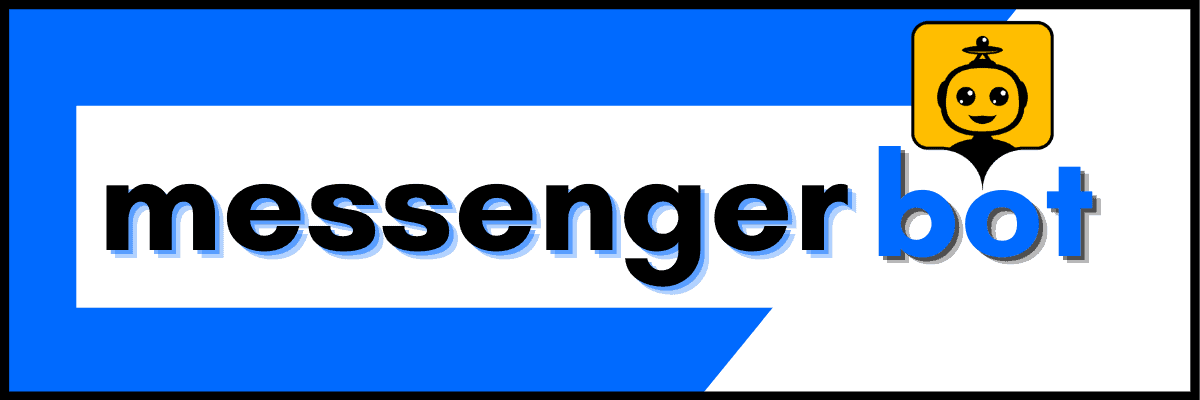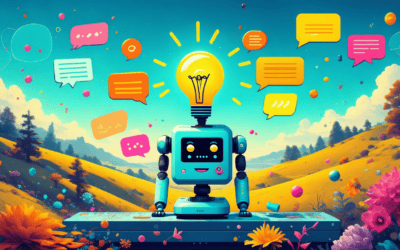In today’s fast-paced digital landscape, delivering exceptional customer experiences has become a top priority for businesses across industries. Conversational AI, a cutting-edge technology that enables natural language interactions between humans and machines, has emerged as a game-changer in this pursuit. As companies strive to streamline customer support, sales, and engagement processes, the demand for top conversational AI vendors has skyrocketed. From industry giants like “air”, “convo ai”, and “air ai” to innovative startups, a myriad of conversational AI platforms are vying to become the “best ai chatbot” solution. This comprehensive guide delves into the world of conversational AI, exploring the top vendors, their unique offerings, and the transformative potential of “conversational ai” for enhancing customer interactions.
I. Which platform is best for conversational AI?
A. Conversational AI vendors list
The world of conversational AI is rapidly evolving, with numerous vendors offering cutting-edge platforms to meet the growing demand for intelligent virtual assistants. Here is a comprehensive list of some of the top conversational AI vendors to consider:
- Google Cloud Dialogflow
- Amazon Lex
- IBM Watson Assistant
- Microsoft Bot Framework
- Oracle Digital Assistant
- Nuance Mix
- Rasa
- Cognigy.AI
- Inbenta
- Botkit
- Avaamo
- Pandorabots
These platforms leverage advanced conversational AI technologies, including natural language processing (NLP), machine learning (ML), and speech recognition, to enable seamless interactions between humans and virtual assistants across various channels.
B. Top conversational AI platforms
While numerous conversational AI platforms are available, some standouts have garnered recognition for their exceptional capabilities and industry adoption. According to Gartner’s 2023 Magic Quadrant for Enterprise Conversational AI Platforms, the top contenders are:
- Google Cloud Dialogflow
- Amazon Lex
- IBM Watson Assistant
- Microsoft Bot Framework
- Oracle Digital Assistant
These industry leaders excel in areas such as natural language understanding, multi-channel support, integration with enterprise systems, and scalability, making them ideal choices for businesses seeking to implement advanced conversational AI solutions.
However, it’s important to note that the “best” platform ultimately depends on your specific business requirements, such as industry, use case, language support, and existing technology stack. Evaluating these factors alongside the capabilities and strengths of each platform is crucial to selecting the most suitable solution for your organization.

II. What are Gartner’s top conversational AI platforms?
A. Conversational AI platforms Gartner
According to Gartner’s research, the top conversational AI platforms for 2023 are:
- Google Cloud Dialogflow (formerly API.AI)
- Amazon Lex
- IBM Watson Assistant
- Microsoft Bot Framework
- Nuance Mix
- Artificial Solutions Teneo
- Rulai
- Inbenta
- Kore.ai
- Cognigy.AI
These leading platforms leverage advanced natural language processing (NLP), machine learning, and sophisticated dialogue management capabilities to enable human-like conversations across various channels, including voice assistants, chatbots, and messaging apps. They are designed for enterprise-level deployments, offering scalability, customization, and seamless integration with existing systems.
Renowned tech giants like Google, Amazon, IBM, and Microsoft, as well as specialized conversational AI companies like Nuance, Artificial Solutions, Rulai, Inbenta, Kore.ai, and Cognigy.AI, are continuously pushing the boundaries of conversational AI technology, incorporating the latest advancements in NLP, machine learning, and dialogue management to cater to evolving business needs and user expectations.
B. Best conversational ai vendors
While Gartner’s list provides a comprehensive overview of the top conversational AI platforms, it’s important to note that the “best” platform ultimately depends on an organization’s specific requirements, use cases, and integration needs. Factors such as industry, customer base, scalability demands, and existing tech stack play a crucial role in determining the most suitable conversational AI solution.
Additionally, emerging players like Messenger Bot, a sophisticated automation platform designed to enhance digital communication through AI-driven interactions, are rapidly gaining traction. By leveraging advanced conversational AI capabilities, Messenger Bot enables businesses to streamline engagement across various channels, including social media platforms, websites, and mobile devices.
As the conversational AI landscape continues to evolve, businesses are encouraged to conduct thorough evaluations, considering factors like ease of implementation, integration capabilities, language support, and vendor expertise, to identify the best-fit solution that aligns with their unique needs and long-term strategic goals.
III. What is the Conversational AI Platform?
A conversational AI platform is an advanced technology that enables seamless communication between humans and artificial intelligence systems through natural language interactions. It combines natural language processing (NLP), machine learning (ML), and deep learning techniques to comprehend, interpret, and generate human-like responses. This platform empowers AI assistants, chatbots, and virtual agents to engage in contextual, multi-turn dialogues, understanding the nuances of human language and providing relevant, personalized responses.
A conversational AI platform typically consists of several key components, including language understanding, dialogue management, knowledge base integration, and natural language generation. Language understanding involves parsing and analyzing user input, extracting relevant entities, intents, and context. Dialogue management handles the flow of the conversation, maintaining context and determining the appropriate response. Knowledge base integration allows the platform to access and retrieve relevant information from various data sources. Natural language generation then formulates coherent, human-like responses based on the analyzed input and retrieved information.
Leading conversational AI platforms leverage advanced language models, such as Google’s LaMDA, which can engage in open-ended conversations on a wide range of topics, exhibiting remarkable language understanding and generation capabilities. These platforms are continuously evolving, incorporating the latest advancements in AI and NLP to improve their conversational abilities, contextual awareness, and overall user experience.
A. Conversational AI Tools
Conversational AI tools are essential components of a comprehensive conversational AI platform. These tools enable businesses and organizations to design, develop, and deploy intelligent virtual assistants, chatbots, and conversational agents. Some of the key tools within a conversational AI platform include:
- Natural Language Understanding (NLU): NLU tools analyze and comprehend human language input, extracting relevant entities, intents, and context from text or speech.
- Dialogue Management: These tools handle the flow of the conversation, maintaining context and determining the appropriate responses based on the user’s input and the conversational history.
- Knowledge Base Integration: Tools that allow the integration of various data sources, such as databases, APIs, and content repositories, to provide relevant information during the conversation.
- Natural Language Generation (NLG): NLG tools generate human-like responses in natural language, based on the analyzed input and retrieved information.
- Conversational Analytics: Analytics tools provide insights into user interactions, conversation patterns, and performance metrics, enabling continuous improvement and optimization of the conversational experience.
Leading conversational AI vendors like Brain Pod AI, Conversica, and IBM Watson Assistant offer comprehensive suites of conversational AI tools, enabling businesses to create intelligent and engaging conversational experiences across various channels and platforms.
B. Conversational AI Solutions
Conversational AI solutions are comprehensive offerings that integrate various conversational AI tools and technologies to provide end-to-end solutions for businesses and organizations. These solutions are designed to address specific use cases and industry requirements, enabling businesses to enhance customer engagement, automate support processes, and streamline operations.
Some examples of conversational AI solutions include:
- Customer Service and Support: Intelligent virtual assistants and chatbots that can handle customer inquiries, provide support, and resolve issues across various channels, such as websites, mobile apps, and messaging platforms.
- Sales and Lead Generation: Conversational AI solutions that assist in lead generation, nurturing, and sales processes, providing personalized recommendations and engaging with prospects in a natural and contextual manner.
- Employee Assistance: AI-powered virtual assistants that can support employees with various tasks, such as answering HR-related questions, providing IT support, and facilitating internal communication and collaboration.
- Healthcare and Wellness: Conversational AI solutions that can assist patients with appointment scheduling, medication reminders, symptom triaging, and providing general health and wellness information.
- Retail and E-commerce: Conversational agents that can provide personalized product recommendations, assist with purchases, and handle order tracking and returns, enhancing the overall shopping experience.
Leading conversational AI companies like Brain Pod AI, Google Dialogflow, and Amazon Lex offer comprehensive conversational AI solutions tailored to various industries and use cases, enabling businesses to enhance customer experiences, improve operational efficiency, and drive innovation through intelligent conversational interactions.
IV. When thinking of leading conversational AI companies, which brands come to mind?
When it comes to the leading conversational AI companies, a few prominent brands immediately stand out. Anthropic is a pioneering force in this space, known for developing advanced natural language processing (NLP) models like Claude, which excels at understanding and generating human-like text for various applications, including conversational AI. Similarly, OpenAI has gained significant recognition for its groundbreaking language model, GPT-3, which has revolutionized the field of generative AI.
Tech giants like Google, Microsoft, Amazon, Apple, Meta, and IBM have also made significant strides in the realm of conversational AI. Google’s LaMDA model, Microsoft’s Semantic Machines, Amazon’s Alexa, Apple’s Siri, and Meta’s AI Research lab are all dedicated to advancing conversational AI technologies and virtual assistants.
Beyond the tech giants, companies like Nuance Communications (acquired by Microsoft) and IPsoft, with their respective products Nina and Amelia, are dedicated conversational AI providers catering to enterprises across various industries. These firms leverage NLP, machine learning, and deep learning techniques to build intelligent virtual agents for customer service, e-commerce, and other applications requiring human-like interactions.
A. “air”, “convo ai”, “air ai”
Among the leading conversational AI companies, Anthropic stands out as a prominent player with its groundbreaking AI assistant named “Claude”, also referred to as “air” or “air ai”. This advanced conversational AI model is designed to engage in natural language interactions, providing intelligent and contextual responses to user queries and prompts.
Another notable player in the conversational AI space is Convo AI, often referred to as “convo ai”. This company specializes in developing cutting-edge conversational AI solutions tailored for various industries, including customer service, sales, and marketing. Their AI-powered virtual assistants are designed to deliver personalized and engaging interactions, enhancing customer experiences across multiple channels.
While these companies may not be as widely recognized as the tech giants, they are at the forefront of conversational AI innovation, constantly pushing the boundaries of what is possible with natural language processing and human-like interactions.
B. Conversational AI company
When it comes to dedicated conversational AI companies, several notable players emerge. Anthropic, the company behind the groundbreaking Claude AI assistant, is a leading force in this space. Their focus on developing advanced natural language processing models and conversational AI technologies has positioned them as a frontrunner in the industry.
Convo AI is another prominent conversational AI company that specializes in creating intelligent virtual assistants and chatbots for businesses across various sectors. Their AI-powered solutions are designed to enhance customer experiences and streamline communication processes.
Nuance Communications, now a part of Microsoft, has long been a leader in the conversational AI space with its Nina virtual assistant. Their focus on enterprise-grade conversational AI solutions has made them a trusted partner for organizations seeking to improve customer engagement and support.
IPsoft, the company behind Amelia, is another prominent conversational AI company that offers advanced virtual agent solutions for customer service, IT support, and various other applications. Their AI-powered assistants are designed to understand and respond to complex queries in a human-like manner.
These dedicated conversational AI companies are at the forefront of innovation, constantly pushing the boundaries of what is possible with natural language processing and human-like interactions, ensuring that businesses can provide exceptional customer experiences and streamline their operations through the power of conversational AI.

V. Which AI tool is better than chat GPT?
A. “best ai chatbot”
When it comes to evaluating the capabilities of AI chatbots, it’s important to consider the specific requirements and use cases for which they are intended. While ChatGPT has garnered significant attention for its impressive natural language processing abilities, there are several AI tools that offer more advanced capabilities in certain areas.
One such tool is Anthropic’s Constitutional AI, which is designed with advanced ethical training to ensure safer and more reliable outputs. This tool is particularly well-suited for applications that require a high degree of trustworthiness and adherence to established guidelines or principles.
Another noteworthy AI tool is DeepMind’s Chinchilla, which is a more efficient and powerful language model than ChatGPT. Chinchilla has demonstrated superior performance on various natural language processing tasks, making it a compelling choice for applications that demand high accuracy and computational efficiency.
It’s also worth mentioning Cohere’s AI, which offers more controllable and customizable language models compared to ChatGPT. This feature is particularly valuable for businesses or organizations that require tailored solutions or have specific compliance requirements.
While ChatGPT has undoubtedly set a new standard for AI chatbots, it’s important to recognize that the field of artificial intelligence is rapidly evolving, and new tools are constantly emerging with advanced capabilities. The suitability of these tools ultimately depends on the specific requirements and use cases, as they offer varying strengths in areas like reasoning, task completion, safety, and domain-specific performance.
B. AI chatbot companies
When it comes to AI chatbot companies, there are several notable players in the market. One of the leading companies in this space is Brain Pod AI, which offers a comprehensive suite of AI-powered solutions, including chatbots, virtual assistants, and conversational AI platforms. Brain Pod AI’s products are designed to enhance customer engagement, automate support processes, and streamline business operations.
Another prominent player in the AI chatbot market is Conversica, a company that specializes in conversational AI solutions for sales and marketing teams. Conversica’s chatbots are designed to engage with potential customers, qualify leads, and schedule appointments, helping businesses to optimize their sales processes and increase revenue.
IBM Watson Assistant is another well-known AI chatbot platform that leverages IBM’s advanced natural language processing capabilities. Watson Assistant is designed to provide intelligent and personalized customer service experiences across various channels, including websites, mobile apps, and messaging platforms.
For businesses seeking a more comprehensive customer engagement platform, Gupshup offers a range of AI-powered solutions, including chatbots, messaging, and conversational AI tools. Gupshup’s products are designed to enable seamless communication and engagement across multiple channels, including messaging apps, social media, and voice assistants.
These are just a few examples of the many AI chatbot companies operating in the market today. As the demand for intelligent and automated customer engagement solutions continues to grow, we can expect to see even more innovation and competition in this space.
VI. How do you train your own conversational AI?
A. Conversational artificial intelligence
To train your own conversational artificial intelligence, there are several key steps to follow. First, you need to define the AI’s purpose and scope, identifying the specific use cases, domains, and tasks it will handle. This clarity will guide the entire training process.
Next, curate a diverse training dataset by gathering a large corpus of relevant conversational data, including transcripts, chat logs, and FAQs, spanning various contexts and user intents. Preprocess and annotate this raw data, cleaning it and removing noise while labeling it with intents, entities, and other relevant metadata.
Select an appropriate pre-trained language model, such as GPT, BERT, or RoBERTa, suitable for the conversational domain. Fine-tune this model on your annotated dataset. Implement a dialogue management system to handle context, state tracking, and response generation based on the user’s intent and conversation history.
Continuously train and refine the AI by regularly updating its knowledge base with new conversational data and fine-tuning the language model. Rigorously test the AI’s responses in various scenarios, gathering feedback from real users. Evaluate its quality using metrics like BLEU, ROUGE, and human evaluation, making iterative improvements.
Once trained, integrate the conversational AI with deployment platforms like chatbots or virtual assistants, connecting it with necessary APIs and services. Monitor its performance, address emerging issues, and periodically retrain with updated data to ensure it remains relevant and accurate.
B. Conversational ai for customer service
When training conversational AI specifically for customer service, focus on curating data from real customer interactions, support transcripts, and common queries. This will help the AI understand the language and context of customer service scenarios.
Incorporate domain-specific knowledge, such as product details, policies, and troubleshooting steps, into the training data. Fine-tune the language model on this customer service-focused dataset to ensure accurate and relevant responses.
Integrate the trained AI with customer service platforms like live chat, chatbots, or virtual assistants. Continuously monitor its performance, gather feedback from customers and support agents, and refine the AI’s knowledge and responses based on this feedback.
By following these steps, you can train a robust conversational AI tailored to deliver exceptional customer service, understanding user intent, providing accurate information, and resolving queries efficiently, ultimately enhancing the overall customer experience.
VII. Conclusion: Unleashing the Potential of Conversational AI
As we navigate the rapidly evolving digital landscape, conversational AI has emerged as a game-changer, transforming the way businesses interact with their customers. From enhancing customer support to streamlining sales processes, this cutting-edge technology is revolutionizing industries across the board. In this concluding section, we’ll explore the boundless potential of conversational AI and the key players shaping its future.
A. Chatbots providers
In the realm of conversational AI, Brain Pod AI stands out as a pioneering force, offering a comprehensive suite of whitelabel and customizable solutions. Their cutting-edge multilingual AI chat assistant empowers businesses to engage with customers across language barriers, fostering seamless global communication.
Alongside Brain Pod AI, industry giants like Conversica and Air AI have solidified their positions as leaders in the conversational AI space. Conversica’s conversational AI platform is renowned for its ability to automate lead engagement, nurturing, and qualification, while Air AI’s Convo AI empowers businesses to build intelligent virtual assistants tailored to their specific needs.
Other notable chatbot providers include IBM Watson Assistant, Microsoft Intelligent Chatbot, and Google’s Dialogflow, each offering unique capabilities and specializations to cater to diverse business needs.
B. Conversational ai software
As conversational AI continues to evolve, the demand for sophisticated conversational AI software is skyrocketing. These cutting-edge solutions empower businesses to create highly intuitive and intelligent virtual assistants, capable of understanding and responding to complex queries in a natural, human-like manner.
Leading the charge in this domain is Brain Pod AI, whose AI writer and AI image generator tools are redefining the boundaries of conversational AI. By leveraging advanced natural language processing (NLP) and machine learning algorithms, Brain Pod AI enables businesses to create highly personalized and engaging conversational experiences.
Alongside Brain Pod AI, companies like Cognigy, Pandorabots, and Inbenta are also making waves in the conversational AI software space, offering robust solutions tailored to various industries and use cases.
As the demand for conversational AI continues to surge, we can expect to see even more innovative conversational AI software solutions hit the market, empowering businesses to deliver exceptional customer experiences while streamlining operations and driving growth.




